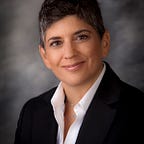Happy 2021! (We can only hope). If 2020 were any kind of indicator, we are in for a wild ride. This last year was, by far, the weirdest year of my life. I am not attaching any ‘good’ or ‘bad’ judgment to the year by saying this, I am simply making a wee observation.
The year started out normally. We probably brought 2020 in with King Julian’s New Year count down, some sparkling apple cider, and a few noisemakers. I am pretty positive I did not make it until midnight. That just isn’t in the cards anymore.
Joan and I had planned a trip to Spain in 2019 to celebrate my 55th birthday and we flew to Barcelona on February 5th, 2020. What a spectacular city. La Familia Sagrada, Barri Gothic, La Pedrera, La Rambla, Parc Guell, and the endless spaces to walk without worrying about traffic. It was too fast, but I am happy we got to experience it.
The plane ride was interesting. Lots of people wearing masks and even more in airports. On the way home, people were being screened if they were coming in from China, so we had an inkling that something was happening, we just didn’t think it would hit the United States so quickly.
Once it hit the United States hard, around March, I started recording a podcast on Anchor called “Armageddon? Xenophobia, Illness, and
Disease ”. Dramatic, yes, but I really did see this as something that would change the way we live in this country and, perhaps, the world. I was also appalled by the language being used to fuel hatred and bigotry and I wasn’t having it.
The story of Coronavirus is just as much a story about racism and xenophobia it is about illness. These were my thoughts in March 2020.
Today is March 17th, 2020
It is March 17, 2020. Not a typical St. Patrick’s Day anywhere in the world. Today, there are 190, 228 cases of Coronavirus with 7, 525 deaths worldwide. In the United States, we account for 5, 261 of those active cases.
I am not shocked by the xenophobia coming out of the mouths of this countries “leadership” but would argue that this should be alarming. I also hear the racism and xenophobia when I screen patients at the hospital and they shout, “I haven’t been to China” when I ask them questions about travel and symptoms. I gently and calmly remind them, while fuming deep inside of myself, “You don’t have to have been to China to be susceptible to this virus-it is right here in your own backyard”.
The language of disease has always been linked to our discourse around immigration and so Xenophobia is not surprising in the face of a pandemic. Mistrust, racism, and fear are all part of this package of misdirection. Public health crises are often used to reinforce racial categories and advance Nativist political movements. This is not new.
In medieval Europe, the Jews and Gypsys were blamed for the spread of the bubonic plague. In the 1800s Typhoid was associated with the Irish, in the 1900s the Influenza was blamed on the Germans. In 2003, SARS was associated with Asian Americans, and H1N1 was associated with Mexico and other Latinx, partly because of news that it had come from Mexican pig farms. In the 1990s, HIV was often referred to as 4H-Haitian, Homosexual, Hemophiliacs, and Heroin users, stigmatizing certain groups of people to our detriment. Labeling HIV made other vulnerable groups feel safe.
Many of you can’t imagine the kind of discrimination gay men faced during this health crisis. The NY Times was the first to use the term “Gay-Related Immune Deficiency” or GRID in 1982. This was what researchers were calling HIV/AIDS in its early development.
Health care workers often refused to take care of these men. Ward 86, the world’s first AIDS-related outpatient center, opened at San Francisco General Hospital, developed a caring model built on compassion and love.
ACT-Up, an activist group in the ’80s changed the face of AIDS and HIV, as did the Gay Men’s Health Crisis and Lesbians. In 1987, a UK Historian stated “In the USA and the UK, throughout the 80s and 90s, lesbians were active and much appreciated for their caring role in looking after men with Aids — hospital visits, social security forms, befriending and so on. It is important to remember that a lot of these men were not out to their families or were explicitly rejected by their families. They really needed the support which gay-friendly women could provide.”
Coronavirus has sparked anti-Asian bigotry and racism. Trump, the disgraced President of the United States, insists on calling this virus, “The Chinese Virus”, stirring up hatred and mistrust. Others refer to it as the Wuhan Flu or are spreading the false rumor that this has occurred because the Chinese eat bats. We are only starting to see acts of violence against people who are Asian in the United States, but the rhetoric only fuels the fire.
It doesn’t matter who you are or what privilege you have to protect yourself, you are at risk for contracting Coronavirus. You can protect yourself and from bigotry, xenophobia, and racism by checking yourself and calling out those who stereotype and scapegoat others.
This virus is serious, it is real and it is killing people around the world, including people you may love. Let’s not use this health crisis to further marginalize people. It is time to stop lying to ourselves and others and face this pandemic as a united people.
